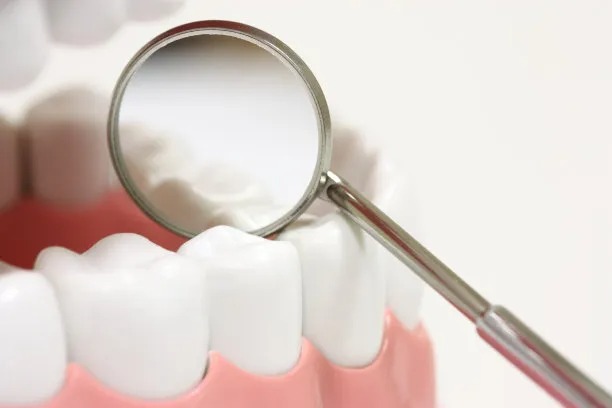Revolutionizing Smiles through Dental Implants Innovations in Restoration and Patient Experience for Lasting Oral Health
Summary: Dental implants have revolutionized the field of restorative dentistry, providing a long-lasting solution for those suffering from tooth loss. This article explores the numerous innovations in implants that enhance both restoration techniques and patient experiences. By discussing advancements in implant technology, the importance of patient-centered care, the impact of digital dentistry, and the role of education in sustaining oral health, we illuminate how these factors interplay to create lasting smiles. Ultimately, the integration of modern innovations and a compassionate approach to care play crucial roles in empowering patients and transforming their oral health outcomes.
1. Innovative Technologies in Dental Implants

Recent advancements in technology have significantly transformed dental implants, making them more effective and accessible than ever before. New materials, such as titanium and zirconia, offer greater biocompatibility, leading to faster healing times and improved success rates. Dentists can now select materials based on individual patient needs, tailoring their approach to optimize treatment outcomes.
Moreover, the introduction of 3D printing technology has revolutionized the way dental implants are designed and manufactured. Custom-fitted implants can be created based on precise digital models of a patients mouth, which ensures a perfect fit and function. This function not only improves the aesthetic appeal but also enhances comfort, resulting in a more streamlined patient experience.
Another significant innovation is the development of digital imaging techniques, such as Cone Beam Computed Tomography (CBCT). These advanced imaging technologies produce detailed images of the dental anatomy, allowing for more accurate assessments and treatment planning. Consequently, implants can be placed with greater precision, further ensuring their long-term success.
2. Patient-Centered Care Enhancements
As dental implants gain popularity, the patient experience has become a central focus for dental practices. Enhanced communication and transparency between dentists and patients are key elements in achieving successful treatment outcomes. By clearly explaining procedures and expected results, practitioners can reduce patient anxiety and foster trust.
The role of empathy in patient care cannot be understated. Modern dental practices emphasize a compassionate approach, understanding that many individuals bring preexisting fears to their appointments. By creating a welcoming and supportive environment, dental professionals can help alleviate anxiety and make the treatment process more enjoyable.
Effective post-treatment care is also essential in maximizing the success of dental implants. Follow-up appointments and continuous support help ensure that patients maintain their newly restored smiles. Establishing long-term relationships with patients encourages consistent care, ultimately leading to better oral health outcomes.
3. The Impact of Digital Dentistry
Digital dentistry has raised the bar in implant procedures, enhancing the entire workflow from diagnosis to restoration. Technologies such as intraoral scanning and computer-aided design and manufacturing (CAD/CAM) have streamlined the treatment process, allowing for faster and more accurate implant deliveries.
Moreover, the integration of digital platforms has enabled dental professionals to collaborate more efficiently. Dentists can easily share digital files with lab technicians, ensuring that the final restorations align perfectly with the implant and overall dental matrix. This collaboration minimizes errors and enhances overall patient satisfaction.
Additionally, digital platforms offer educational resources that empower patients to make informed decisions about their dental health. By accessing visual aids and online tutorials, patients can better understand their treatment options and prepare for what to expect during their procedures.
4. Education and Ongoing Support for Oral Health
Education plays a pivotal role in maintaining lasting oral health after dental implant procedures. Patients must be well-informed about proper maintenance and care routines, which include regular visits to the dentist, oral hygiene practices, and dietary considerations. Comprehensive education helps prevent complications and enhances the longevity of the implants.
Furthermore, ongoing support from dental professionals can reinforce healthy habits. Many practices implement follow-up programs, providing patients with resources and reminders regarding their oral health. This proactive approach not only fosters a healthier mouth but also encourages personal responsibility towards self-care.
Through community outreach and awareness campaigns, dental professionals can also educate the broader public about the benefits of dental implants. This education can lead to increased accessibility for those considering implants, ensuring that more individuals can reclaim their smiles and improve their quality of life.
Summary:
The evolution of dental implants has dramatically changed the landscape of restorative dentistry. The integration of innovative technologies, patient-centered care practices, and digital solutions have not only streamlined procedures but also enhanced the overall experience for patients. Education and ongoing support are crucial in maintaining oral health, enabling individuals to enjoy lasting smiles. As dental practices continue to evolve, the focus on improving patient outcomes remains a top priority, ensuring that everyone can benefit from these advancements.
This article is compiled by Vickong Dental and the content is for reference only.



